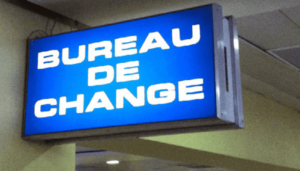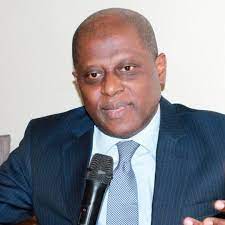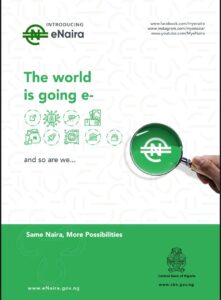The naira is pressured. The naira weakens by the day at the parallel market. Beyond the big businesses, the parallel market has become the main channel to access forex, especially for small and medium-scale enterprises. As of Monday, September 25th, 2023 at the Bureau De Change operators at Zone 4 in Abuja, the Naira was exchanged at N990/$1 if you are selling to the BDCs but f buying, it was N995/$1. A few days ago, it was sold for as much as N1000/$1.
At the weighted average rate at the Imports and Exporters (I&E) window or the official rate as it were was N756.455/$1. This represents a whopping N239.455 difference, a situation that economic watchers say is still  fertile ground for arbitrage. The arbitrage has continued.
fertile ground for arbitrage. The arbitrage has continued.
Recall the CBN under the immediate past acting CBN Governor, Folashodun Shonubi had devalued the Naira in June 2023 and allowed for a free float of the currency far removed from the managed float regime adopted under the previous CBN regime. The free float is majorly supported by Western economists, the World Bank, and the International Monetary Fund (IMF), and indeed some Nigerian economists and financial experts say it is unsustainable to continue to defend the naira in the face of the low foreign earning capability of Nigeria. In addition, following a report of the CBN’s huge exposure to American banks, JP Morgan and Goldman Sachs as of the financial year ended December 2022, Nigeria’s foreign reserve is less the $4bn, sufficient to finance just one month of imports. This means the naira will continue to lose value.
The situation is impacting the costs of doing business and exacerbating the economic hardships across the country.
There seems to be no respite especially now that a new CBN management team led by Dr. Olayemi Cardoso is still settling in. The new team would first understudy the situation before introducing monetary policy measures aimed at addressing the forex crisis.
Although the CBN has consistently maintained that the BDC market is a very shallow market and the rates on the streets cannot be used to determine the value of the Naira, with the forex crunch at the CBN, the BDCS have become a sure source for forex, if you must meet your import needs and others like school fees, medical bills, small machinery import and more.

Recall the CBN had banned forex sale to BDCs in July 2021, to stem the fall of the Naira. The Naira fell to N505/$1. Before COVID-19, the value of Naira was N360 to $1. Thus, in just about three years, the naira shredded N620 at the parallel market and over N500 at the official market.
The ban on forex sales to BDC wasn’t the only regulatory action the CBN had taken to help the naira improve. Recall in September 2021, the CBN came down hard on AbokiFX, an online website that provided daily exchange rates. The CBN had accused the promoters of AbokiFX of manipulating the exchange rates and milking the economy arbitrarily.
Mr. Godwin Emefiele, the CBN Governor at the time said “He (the owner of the website) gets Naira notes and uses it to purchase dollars, take a position and change the rates over a given period, sell the dollars they purchased and make a profit. This is completely illegal; it is unacceptable and we will pursue them,” Mr, Godwin Emfiele, the CBN Governor had said.
At the time the CBN clamped down on AbokiFX, the Naira was exchanging at N570/$1. The clamp down on AbokiFX just like the ban of forex sales to BDCs didn’t stop the free fall of the naira.
Beyond these two, there were other policy options the CBN took in conjunction with the banks to reduce pressure on the Naira. The banks had issued out notices to customers limiting their daily foreign spend on their naira debit card to $20. This followed from an earlier $100 daily limit. This has been lifted.
Also, recall the banks had in 2020 stopped the use of naira cards for ATM foreign currency withdrawals while reviewing monthly international spending using naira cards from $500 to $300 and ultimately to $100. This has also been relaxed.
The banks also stopped giving BTAs or PTAs in cash to seekers. They would credit your dollar card so you are unable to round trip the cash. Some banks would give $200 maximum cash while the balance is credited into a card for the customer. Now, customers can cash their BTAs and PTAs.
All of these seemed not to have been the magic wand the CBN had hoped for. This has raised fundamental questions as to the core issues impacting the naira value.

Experts have maintained that except for Nigeria revving up exports, reducing appetite for foreign goods, and closing the huge gap between the official forex rate and the parallel market, there is perhaps no end in sight.
Following the intermittent intervention by the CBN to shore up the naira value, data from the CBN, Nigeria’s external reserves depreciated by $1.37 billion (3.37%) in the first six months of 2022 to $39.16bn as of June 30 from $40.52bn it closed in 2021.
Also figures from the CBN’s January monthly report on ‘Foreign Exchange Market Developments’ showed that $1.71bn and $1.65bn were injected in December 2021 and January 2022 respectively representing about $3.36bn.
The report said, “Total foreign exchange sales to authorized dealers by the Bank was $1.65bn in January, representing a decrease of 3.1 percent, relative to $1.71bn in December 2021.
The data also revealed that the external reserves fell to $38.882bn on August 11 from $39.219bn at the end of July 2022. But this was before the revelation of CBN’s indebtedness to American banks.
According to Emefiele as of August 2022, there was a marginal increase of 0.39 percent in the level of external reserves to $38.46 billion in August 2022 from $38.31 billion in July 2022 despite continued demand pressure. It is not immediately clear if this will make any impact on the naira value but experts are not excited.
Alhaji Aminu Gwadabe, President of the Association of Bureau De Change Operators of Nigeria (ABCON) said there is no hope in sight.
Gwadade in a chat with our correspondent said “Things are heading for the worse in the market. It appears there is total confusion by the regulator.”
He said there is likely hoarding already by some banks ahead of the CBN ban on forex sales to the banks so they can make huge profits on arbitrage. He said most banks are not even selling forex to most customers especially the BTA and PTA just to hoard the dollars adding that most travelers have now resorted to BDCS to meet their BTA and PTA forex needs.
The chairman of Air Peace Limited Mr. Allen Oyema also said sometimes even the airlines access their forex needs from the parallel markets at huge cost. Some manufacturers have also said that most times they access forex on the streets to import critical components.
Our correspondent reports that BDCs in Abuja are reporting a huge scarcity of forex as they no longer have sellers to buy from.
Expert Speak
A finance expert and senior partner with SPM professionals, Mr. Paul Alaje advised the Central Bank of Nigeria to return the naira to a fixed rate so as to curb the free fall of the Naira against the dollar.
According to him, having a fixed price for the naira will go a long way in improving price stability while making reference to the “United Arab Emirates who fixed their currency at 3.6 Dirham against the dollar and nothing has changed years after,”
Alaje noted that “Since 2017 when the CBN removed the dollar from a fixed to a floating rate, it meant that the market forces will determine price which the effect is showing in the parallel market. “In fact even as at 2015, the exchange rate was not even up to N300, it is very sad,” he said.
On what the CBN can do, he said the Monetary regulator should as a matter of urgency “Return the naira to a fixed rate as a measure to control price,”
He added “The fiscal authorities must also make deliberate efforts to improve manufacturing and exports which are the major determinants of our foreign exchange as the country does not have enough in its foreign reserves compared to the daily demand for foreign exchange in the country.”
An economist who craved anonymity, because he is not authorised to speak on the matter by virtue of his office, said managed float is still the best option available to the CBN.
“Fixed exchange rate can’t be a solution because we lack the reserves to absorb the shocks. Do managed floating, it’s the best for a developing country like ours, and deal ruthlessly with those involved in arbitrage. Our laws are clear on arbitrage which is simply money laundering” he said.














